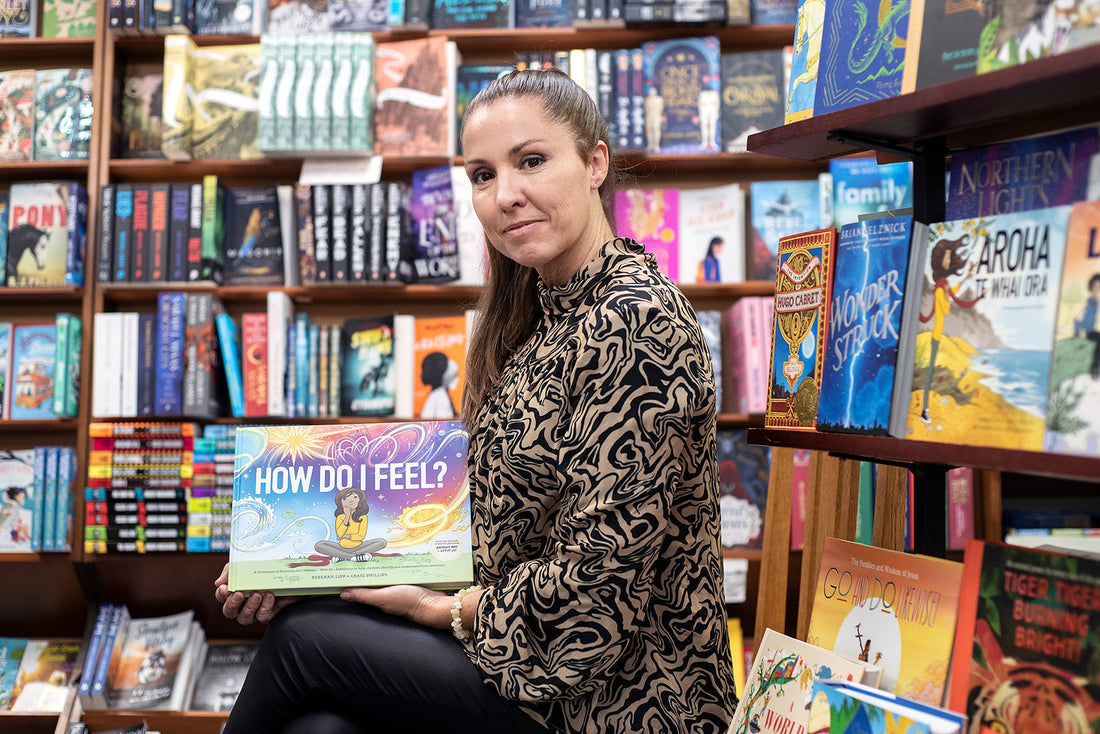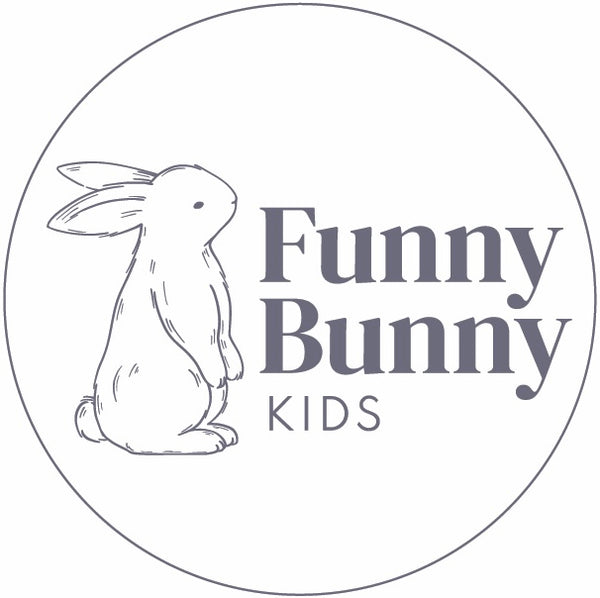
Meet Bex Lipp, author of NZ's only books for children about anxiety and emotions
Share
I was lucky enough to be able to chat with Bex about mental health and breaking down barriers, what the conversations with our children can look like and how parents and teachers can help children today.
Bex has been on a mission to bring an awareness about mental health to parents and teachers in order to empower children with skills to help them tackle their feelings.
Through her books children can connect with their emotions and learn ways to regulate them.
With a gentle parenting approach, Bex feels that all children have a genius within them and if we act out of a place of compassion, kindness and love, we will see our children thrive.
Here's the questions I threw at Bex and her insightful answers and advice for mums, dads, caregivers and teachers.

What does positive mental health and gratitude look like in your daily life?
It took massive break down in my twenties to realise how important looking after my ‘thoughts’ was. What I mean by that is, I had to be careful not to allow too much free time for my brain to ruminate on things. So, for me, feeling good about life is keeping myself busy and not just on anything, meaningful projects, like the books we are creating here at Wildling Books. Sharing the ways that have helped me over the years to stay mentally well. I don’t want to glorify being busy because there is definitely a balance there. It is finding out what works for you.
Also, going to the gym. Allowing myself to really sweat it out and push myself at the gym makes me feel SO GOOD! I mean, it is hard to get myself there, but I never regret going and it has become part of life now. The confidence you get from feeling physically strong and healthy definitely rubs off on how you might feel mentally, well, it does for me.
Laughing is another important part of staying well for me. I am lucky to be surrounded by some very funny people who make me laugh out loud regularly. So good for the mind, body, and soul.
Lastly, I am consciously aware of how lucky I am. I used to write in a gratitude journal for many years but now it has just become a way I live. I am so aware each day of many things that I can be grateful for and so now live life in a state of contentment often. This has taken a long time to achieve but helps me immensely.
What are some ways parents can begin to incorporate conversations around emotions and well-being into children’s day.
Simply start with talking about emotions. When you see a child experiencing an emotion, tell them. For example, I might see my son getting really frustrated so I will say, “Wow, you look like you might be feeling frustrated. Would you like some help?”
Help them learn to label what they feel. Give them the words to describe their emotions. That is the entire reason we created the book, How Do I Feel? A Dictionary of Emotions for Children, to help empower children with the words to match how they feel. This helps us feel less alone and understand what might be driving us to feel a certain way.
So, just start talking more about how you feel. It can seem foreign to a lot of us because it definitely wasn’t how we were raised. I have found in my family that being open about how you feel helps to connect you more. No one is afraid to express themselves for fear of shaming or being dismissed.
That really leads me on to validation. Validation is another important technique that maybe we should all be using with each other. Not just the children. Validating a child’s feelings, no matter how silly they may seem.
Here is what validation may sound like. My sons are arguing. I can tell my youngest is frustrated with the older one correcting him constantly. I can tell because he starts yelling at the older one and then storms off. I go into his bedroom and ask him what happens. He is still really upset.
“Ollie keeps correcting me, like he knows everything and he doesn’t.”
I say, “how does that make you feel?”
“Really angry!”
I say, “I can see that you are angry because he keeps correcting you. It has made you really upset and I am sorry you feel that way. Can I do anything to help? Would you like a hug?”
Validation is like repeating back what you heard your child say. So they know you heard them. You don’t have to agree with them, you are simply acknowledging how they are feeling. Then you can work out, once everyone is calm, the best way to move forward in a positive direction.
What are your go to podcasts or books for parents wanting to develop their personal learning further?
My children are much older now, so I haven’t really followed anyone for a long time. I have actually learned to trust my intuition with regards to parenting more and more as my children have grown up. Ideas change over time, but I always come back to conscious, gentle parenting. I do love The Natural Parent Magazine which is more in tune with my parenting style. I guess, go with what fits with your inner guide when it comes to your kids. No one knows them better than you.
From Sara...Some podcasts I love are :
The Motherkind Podcast
The Anxious Child
Parent Pod
The Kind Parenting Podcast
This Glorious Mess
Unruffled- Janet Landsbury
The Playful Psychologist
Me After You
Parenting Hell
Raising Good Humans
Good Inside with Dr Becky
What 3 main emotions are you finding kiwi kids are struggling with today and how can we assist this in schools and home.
Shame – probably due to the terrible bullying that can go on in schools. We have one of the highest rates of it in the world. Shame is a difficult emotion to process and it actually registers as pain in our brain. Being more open to talking about shame (and all emotions) will help. Sharing experiences you have had where you felt this emotion can create trust.
Anger – there is an issue with children who display anger when they are upset instead of crying. Anger seems to be met with more anger and so these children will not be comforted and helped to resolve their issues. Punishment usually is the end result for them. Children (and adults) need to learn that emotions are messages. They are trying to tell us something and if we look deeper we can understand why certain emotions visit us. Also learning to release emotions in safe ways is great. Teach kids it is okay to feel anger and you can do things like yell into a pillow or do some stomping or go for a fast sprint to let that emotion out. Work out what works for each child and their particular environment.
Anxiety – this one is on a rapid rise and is very concerning. I know for me anxiety left and not resolved can turn into a monster that can cripple your life. Again, the more we talk about our emotions and be in safe settings where we can talk about how we feel is vitally important. Being heard and validated is key! Then the next step would be to work out ways to empower children to manage these emotions when they come up. What tools can they use to make themselves cope and then release the emotion.

What is one gift you wish you could give all parents
I wish parents could all go back to visit themselves when they were children. Give that little version of themselves a big hug and love them. If we could all remember how hard it is being little. So much is out of our control, that feeling of vulnerability and powerlessness that all children must experience but isn’t acknowledged. So many parents hold trauma from unresolved emotions, and I wish I could help them learn to release it. Forgive themselves. That is why the books we write are not just for children, but we hope all the parent and teacher notes that are included that the adults can learn right alongside the kids.
Check out some of the books Bex and co-author Craig have written to help our tamariki

